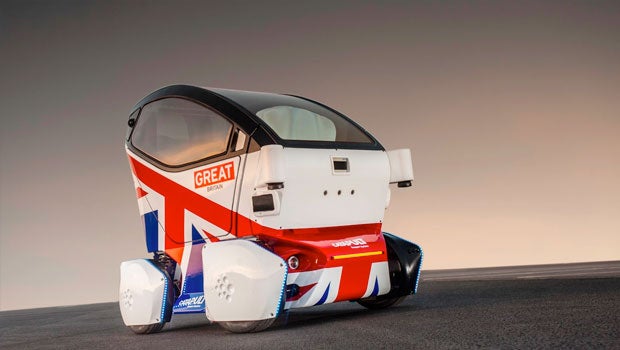Driverless cars given the green light for UK road tests

Driverless cars could be heading to a road near you as the UK backs a code of practice for their use on British streets.
In a bid to keep footing with the autonomous vehicle tests currently being conducted in the US, the government’s Department for Transport has developed the world’s first driverless car code of practice with input from a variety of stakeholders, including UK AutoDrive and the GATEway consortia (via: Telegraph).
This outlines the protocols that need to be in place for driverless car tests to take place on the nations roads.
With the code of practice finalised, it has been confirmed that driverless car tests will start in four UK towns and cities – Bristol, Coventry, Milton Keynes and Greenwich in south-east London – for the first time in 2017.
“We’re coordinating the trials technically and working with government to ensure that the legislation keeps pace with what the technologies need to do in order to facilitate this brave new world,” said Tim Armitage, project leader at the Autodrive Consortium.
“One of the things we will be doing is undertaking some acceptance surveys globally and in the UK to gauge public opinion around driverless technologies, and we’ll monitor how that changes over the three years of our project.”
As well as clearing the tests of M1 driverless vehicles, the code also highlights means of testing autonomous transportation pod – such as the Lutz Pathfinder – which will travel on the nation’s pavements.
Related: Driverless Cars: Everything you need to know
Despite much excitement surrounding the dawn of driverless cars, Armitage has looked to stem the hype, warning that driverless cars won’t be an ever-present sight on British streets anytime soon.
“Some of the systems are there now, and those systems will be enhanced and improved and additional systems will come in, until one day, in 15 years time maybe, we’ll suddenly realise we have a vehicle that in most circumstances can drive itself,” he said.
“We know that autonomous vehicles will reduce incidents – that’s a given – but there’s no proof that autonomous vehicles will reduce congestion and thereby improve air quality, and that’s something that we’re going to find out in the three years that we’re operating.”
Driverless cars are one tech of the future, here are a few more to enjoy:

